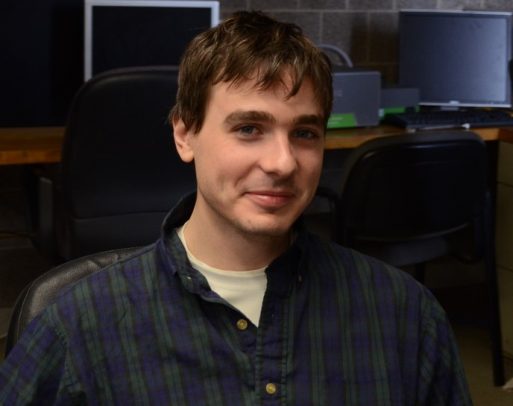UIC doctoral student selected for Department of Energy research award
Nicholas Glass, a Ph.D. student in biological sciences at the University of Illinois Chicago, has been named a recipient of a Department of Energy, or DOE, award that provides supplemental funds for thesis research at a DOE-affiliated laboratory.
Glass, whose research covers ecosystem ecology, global change and soil conservation management, was one of only 78 U.S. graduate students to earn the honor based on merit peer review by external scientific experts and conveyed via the DOE’s Office of Science Graduate Student Research Program.
In addition to access to state-of-the-art facilities and resources at DOE National Laboratories, another key benefit of the program is the opportunity for students to collaborate with a DOE laboratory scientist.
Glass will work for three months with UIC alumna Beth Drewniak, an earth scientist in the environmental science division at Argonne National Laboratory, whose research interests involve understanding the role that human land management plays on water, energy, and biogeochemical cycles. Drewniak specializes in land surface modeling and has participated in the development of two earth system models at Argonne, where she is the lead developer of the agriculture model in DOE-Biological and Environmental Research’s Energy Exascale Earth System Model.
As part of his thesis research at UIC, Glass is investigating soil microbial energy use and limitations within the rhizosphere while based in a lab led by Miquel Gonzalez-Meler, UIC professor of biological sciences. Last year, he conducted a root decomposition study at Midewin National Tallgrass Prairie with the help of the Gonzalez-Meler lab and the U.S. Department of Agriculture Forest Service.
“I buried root material in mesh bags in December and then returned once a month to excavate some of the roots bags and measure decomposition,” he said. “The original idea was to look at the effect of land use on decomposition, but because we had that really dry period towards the end of last year we can now also look at the effect of precipitation.”
The DOE award will allow Glass to model the effect of precipitation on root decomposition using Drewniak’s Energy Exascale Earth System Model.
“It’s exciting for me because I’ll gain exposure to cutting-edge modeling techniques,” he said. “We’ll be using the supercomputers at Argonne and I’ll be able to explore some basic machine learning techniques.”
Categories

